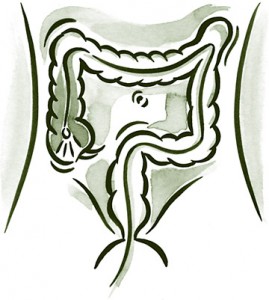Colonoscopy
 This procedure involves a colonoscope – a long, thin flexible tube with a ‘video camera’ at the tip – gently passed into the rectum and through the colon.
This procedure involves a colonoscope – a long, thin flexible tube with a ‘video camera’ at the tip – gently passed into the rectum and through the colon.
It allows the doctor to inspect the entire large intestine (colon) and also perform specialised procedures such as biopsies and removal of polyps.
Colonoscopy is used to investigate many different conditions including abdominal pains, altered bowel habit, rectal bleeding, weight loss and a low blood count.
It is also frequently done in asymptomatic patients to screen for pre-cancerous conditions such as polyps, and remove them if present.
Having a colonoscopy dramatically reduces your future risk of bowel cancer. In order for your doctor to get the best possible view and make the colonoscopy easier, your large bowel needs to be cleansed of all faecal material, so strictly following the bowel preparation instructions is important.